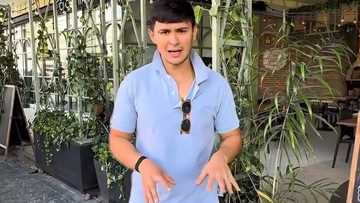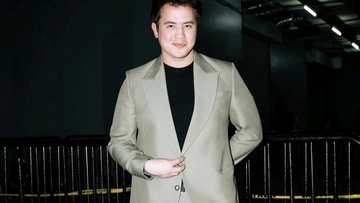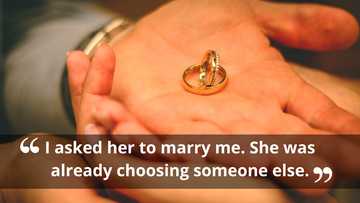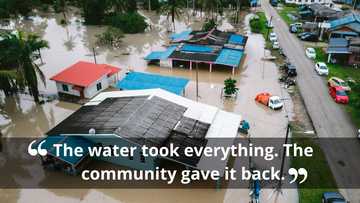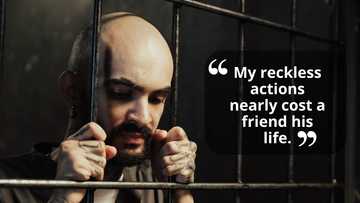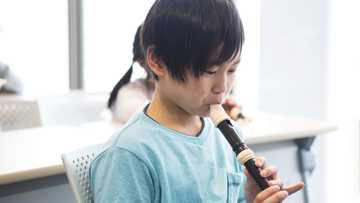I Lost My Only Son — Today His Best Friend Said, “Your Son Left You Something”
The hospital room in Cebu City was stark, almost clinical, with a white colour that seemed to heighten every sound and sensation. Yet, underneath the sharp scent of antiseptic, there was a profound, life-affirming sweetness, like ripe guavas and baby powder. This scent violently dragged me back four years and shoved me into a confusing, glorious present.
PAY ATTENTION: stay informed and follow us on Google News!

Source: Getty Images
My wife, Tessie, walked beside me, her steps hesitant. She wore her oldest, most beloved baro't saya, a faded gold and maroon piece she only brought out for momentous occasions or moments requiring deep, quiet strength.
We had driven the winding, two-hour stretch from the outskirts of Manila, past the bustling markets of Calamba, the rolling green hills, and the roadside sellers hawking everything from pineapples to miniature jerrycans of petrol.
The urgency of Joselito's call had made the journey feel like a desperate race against time, though time was the very thing I'd learned to dread. "He's finally here, Tatay. The little lion has arrived," Joselito's voice, a beautiful, controlled tenor, had vibrated with a joy I hadn't heard from him in nearly half a decade.

Source: Getty Images
Like and share our Facebook posts to support the KAMI team! Share your thoughts in the comments. We love reading them!
Joselito. His name still carried the weight of both immense gratitude and unspoken sorrow. He wasn't my son. Not by the blood that flows through a father's veins. But standing outside this door, smoothing the rough cotton of my barong, I felt the terrifying, exquisite pressure of a father's hope.
We pushed the door open, and the wave of familial warmth was almost visible. The room wasn't quiet; it hummed with the soft, low sounds of celebration, the gentle cooing, the murmur of proud voices.
Already, Joselito's parents, pillars of quiet pride and tradition, and his mother-in-law, a stately, silver-haired woman in an immaculate ivory terno, held the tiny, swaddled bundle with the reverence of a high priestess.
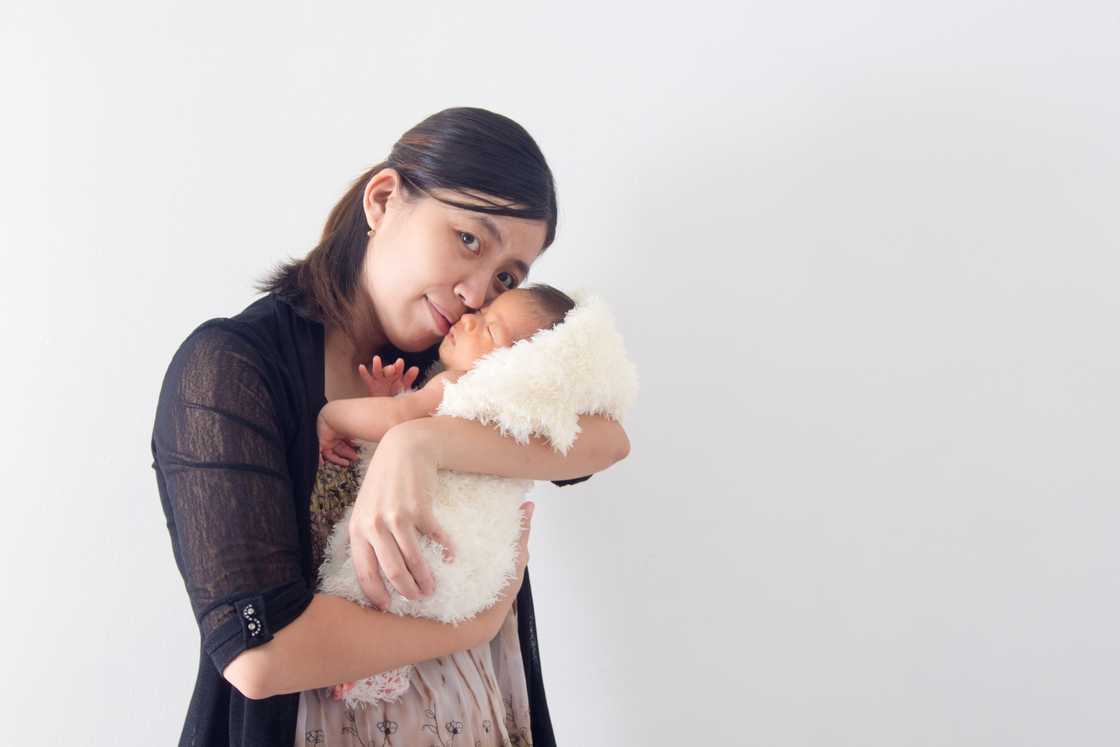
Source: Getty Images
My eyes found Joselito first. He was leaning against the foot of the bed, handsome in a deep blue shirt, his face etched with exhaustion and beatific wonder. When he saw us, his whole being seemed to lift.

Read also
My Wife Had an Affair While Travelling for Work — I Confronted Her and Gained Custody of Our Kids
That lopsided, familiar grin, that always tugged at the corner of my memory, reminding me so much of Rico, spread across his face. He came toward us quickly, with the slight, almost imperceptible drag in his left leg, a silent narrative of the night the world broke.
He didn't speak a word as he reached me. He enveloped me in a firm embrace, a hug of such raw, masculine emotion that it threatened to shatter the carefully maintained composure I had cultivated for four years.

Source: Getty Images
It was a hug that felt like a bridge connecting our past, his survival, and my Rico's memory. Then, his mother-in-law, sensing the moment, gracefully moved toward me. She extended her arms, a silent offering.
I felt Tessie place a steadying hand on my back. Without a word, the grand matriarch carefully placed the small, warm body wrapped in a patterned receiving blanket into my trembling arms. I had forgotten the impossible lightness of a newborn.
This body had never known sorrow or regret, only the absolute safety of the womb and the sheer possibility of the world. I hadn't held a baby this small since I taught Rico to grasp my finger. My vision swam. The hospital lights became shimmering halos. This was the son of the boy who lived. Not mine.
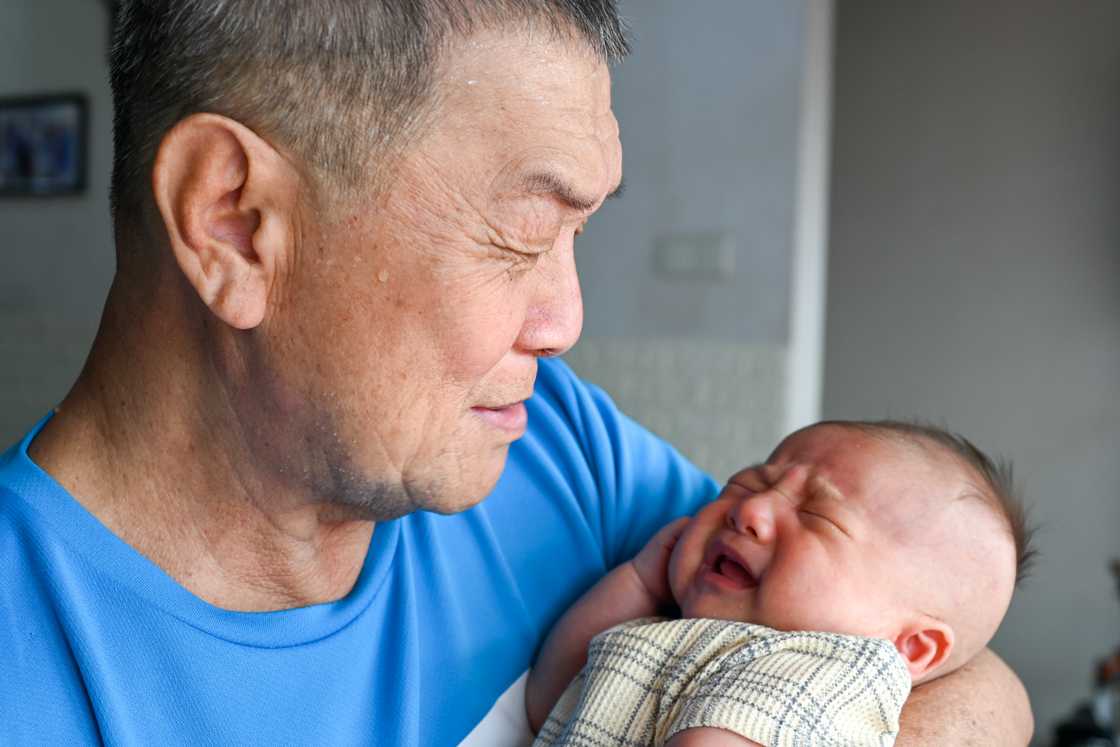
Source: Getty Images
The tears that finally came were scalding, surprising in their ferocity. They weren't entirely tears of grief. It was a sudden, overwhelming release of pressure, a mixture of the pain that never left and the impossible joy that had just arrived.
Joselito moved to my side, his shoulder brushing mine. His voice was low, resonant, and steadying. He looked not at the baby, but directly into my watering eyes, holding my gaze with absolute certainty. He didn't offer a polite welcome or thanks for the drive.
"Tatay, Nanay Tessie," he announced, his voice carrying just enough volume for everyone in the room to hear. "Here is your grandson."
I looked from Joselito to the baby, my heart hammering a frantic rhythm against the wall of my chest. I opened my mouth to ask the impossible, obvious question, but no sound came out.
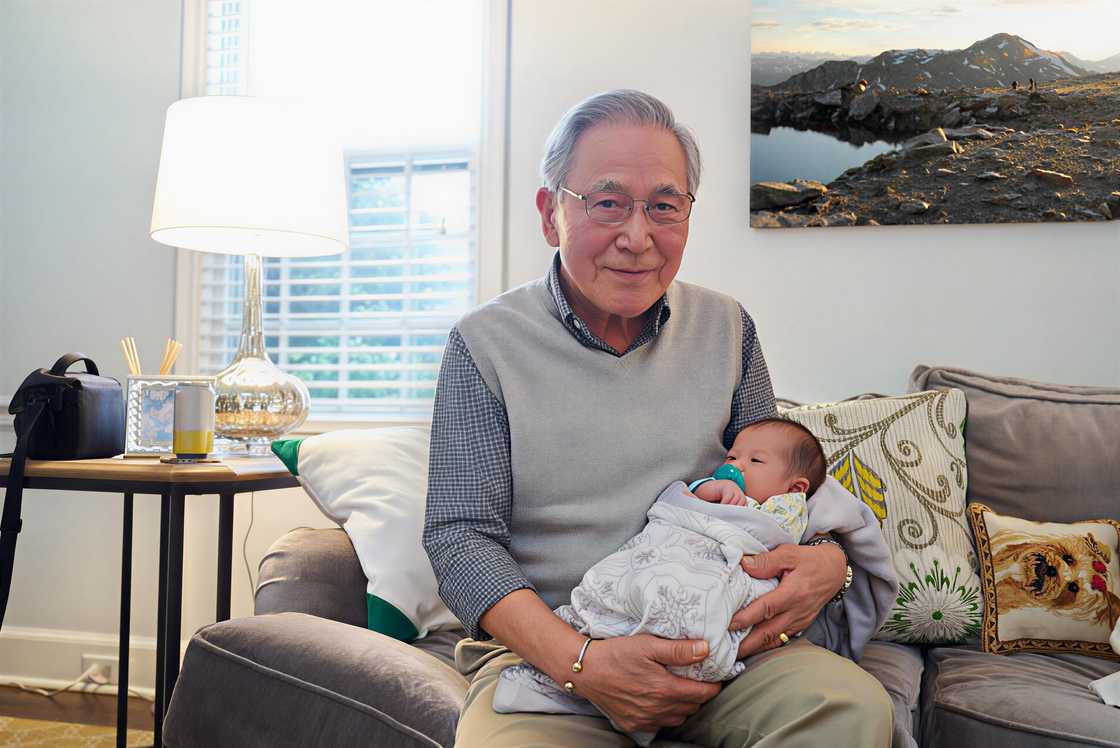
Source: Getty Images
He leaned in closer, his breath warm next to my ear. "We named him Rico." The world dissolved into the high-contrast blur of white light and blinding tears. The shock was immediate and complete, a physical force that made my knees buckle slightly: my son, my only Rico.
His name, given to this new life, a tiny, breathing human being. A magnificent, defiant reclamation of the life we had lost. Rico. My son. He was the definition of "Buhay ay pakikipaglaban;" life is a battle, but he faced it with the confidence of a king.
He was twenty years old, tall, lean, and possessed a mischievous glint in his eye that promised adventure. He had a natural aptitude for fixing things, spending hours tinkering with old radios and discarded motors, dreaming of becoming an electrical engineer—a dream he had just weeks before starting university.

Source: Getty Images
He and Joselito were more than friends; they were twins separated by different mothers. They shared secrets, worn-out comic books, and an ambitious, somewhat battered bicycle they'd inherited from an older cousin.
Joselito, slightly shorter and more reserved, was the anchor to Rico's kite. He was always at our house, a quiet presence that made our family unit complete. Tessie fed them both equally, scolding them equally when they tracked mud into the small living room.
Then came the night the world went silent. It was a Friday, and a party was being held near the Industrial Port. The roads were dark, and the visibility was poor. The details, filtered through police reports and Joselito's own broken memory, were agonisingly sparse.
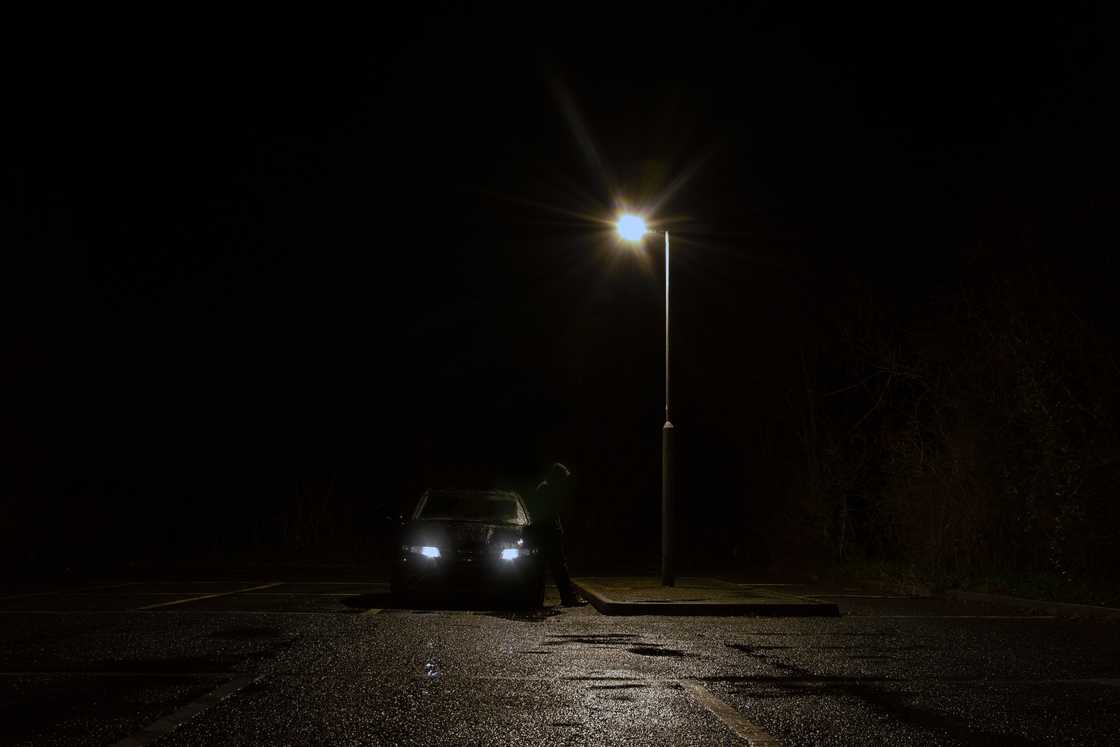
Source: Getty Images
They missed a turn, or the car skidded out of control. The old Narra tree near the industrial park stood sentinel over the wreck. Joselito was severely injured. Multiple fractures, internal bleeding, and that deep, ugly gash that scarred his leg and left him with a permanent, subtle hitch in his step.
The doctors fought for his life for days. But Rico, our Rico, was gone instantly. The funeral was a blur of weeping relatives, the incessant, mournful weeping and wailing, and the realisation that the future had ceased to exist.
We watched them lower his casket into the hot, red earth, and a part of Tessie and I were buried with him. Afterwards, the silence in our home was deafening. Every object, from Rico's dusty football boots by the door to the half-finished book on his bedside table and the perpetually empty chair at our dinner table, was a monument to his absence.
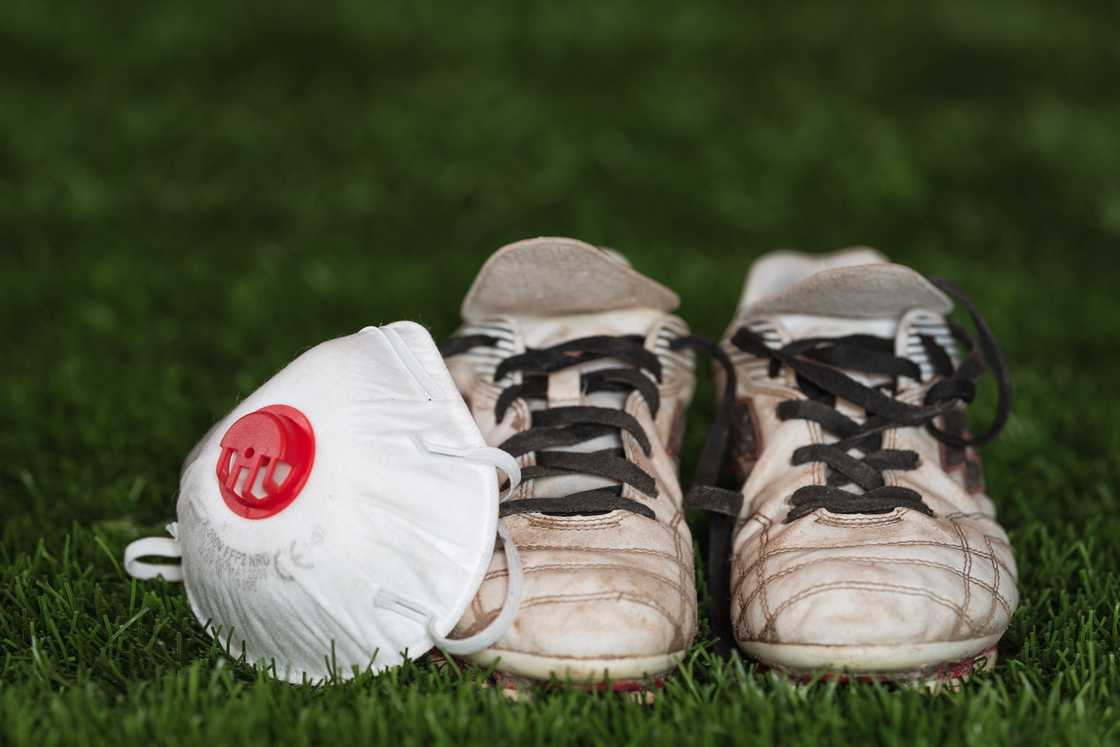
Source: Getty Images
Tessie stopped wearing her bright colours and only spoke in tired whispers. I retreated to my shop, working meaningless hours, the sweat on my brow a poor substitute for the tears I refused to shed.
The stakes were impossibly high. Rico was our only child. He was our investment, our hope, our generational bridge. With his death, we felt not only the loss of a son but the terrifying, desolate loss of our entire legacy. We were two old trees, standing alone, robbed of the fruit we had nurtured.
I sank, slowly but surely, into the depths of my grief. Rico's room became my sanctuary. I would sit on his worn armchair, the scent of his old cologne faint on the fabric, and mourn the life that would never be. The outside world felt sharp, loud, and wholly irrelevant.

Source: Getty Images
But Joselito was the defiant pebble in the shoe of our solitude. He was released from the hospital, still weak, still walking with a noticeable limp, but he started showing up. Every Saturday morning, without fail, there he was at our gate.
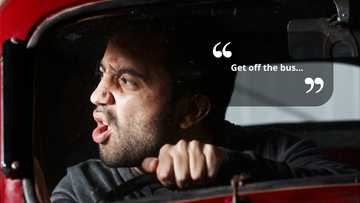
Read also
Bus Conductor Let Me Ride for Free While I Struggled — I Stabilised My Finances and Paid It Forward
His initial visits were torture. He'd arrive in an ageing taxi, apologise for the fare, and sit on our porch. He brought no food, offered no advice, and often said little. He existed in the same space as us. It wasn't enjoyable.
It was an unwelcome intrusion into our chosen landscape of misery. We wanted to be sad and alone, to nurse our wounds in silence, but Joselito wouldn't let the silence consume us.
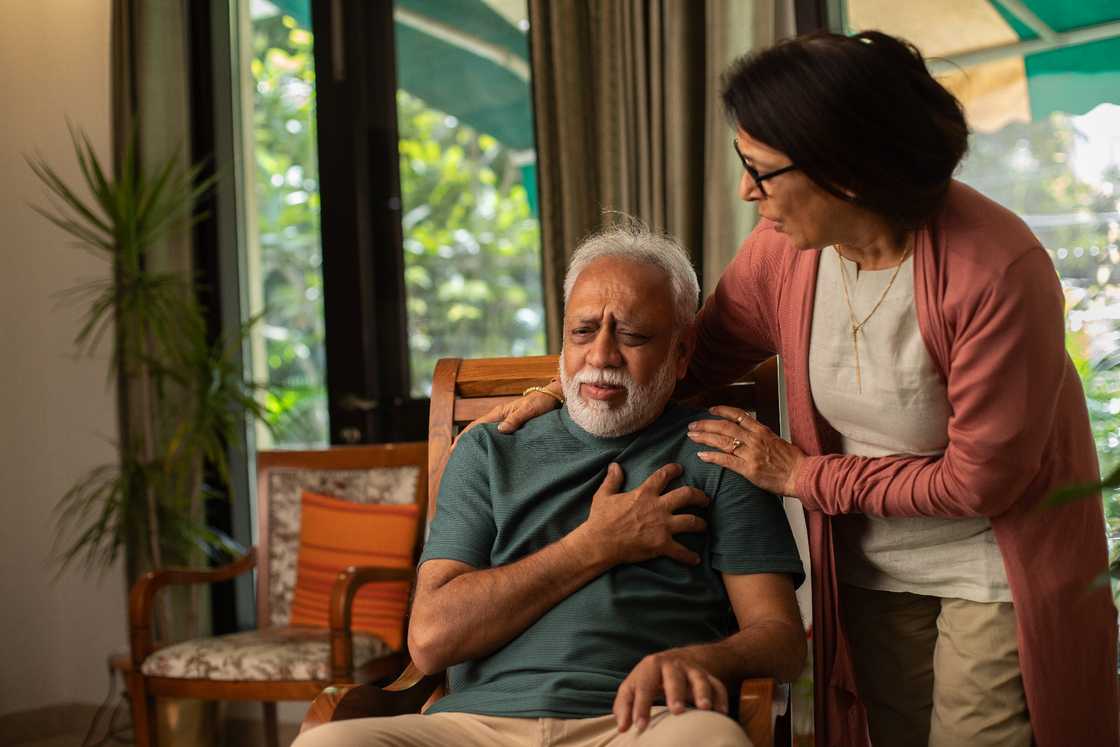
Source: Getty Images
I remember the day Tessie finally broke her silence. It had been three months since the burial. Joselito was quietly sweeping the dried leaves from the porch, something Rico always complained about doing.
Tessie emerged from the gloom of the house, her eyes red, her voice a cracked, tired sound. "Joselito," she said, her hands folded tightly across her waist. "Why do you keep coming here? We are not a good company. Go live your life. Aren't you tired of seeing our paghihirap (misery)?"
He paused, the broom still, and looked at her with a maturity far beyond his years. "Nanay Tessie," he replied softly, his gaze respectful, fixed on the ground. "I was driving. I survived. The doctor said if I hadn't broken my leg, I might have suffered worse injuries or died.

Source: Getty Images
I walk with a limp because of the accident, but I walk. Every time I take a step, I think of Rico, who cannot. If I stay away, I lose him all over again. When I sit here, near the memory, near the love you two have, I feel like he is still here. You are the only place I can feel close to my brother."
His confession hit us like a strong wind. It wasn't about guilt. It was about shared grief, a profound need for connection. We realised his visits weren't a burden to us, but a necessity for him. He wasn't reminding us of our loss but helping us access Rico's presence.
Joselito didn't just sit; he started being useful. He found the old toolbox and fixed the rusted latch on the back door I had ignored. He took Tessie's torn clothes to the tailor. He would often sit with me in the evenings, watching the news on TV, and talk about simple, non-painful things, basketball, politics, and his slow recovery.

Read also
My Ex-friend Said She Missed Me — I Blocked Her When I Realised She Only Wanted My Connections
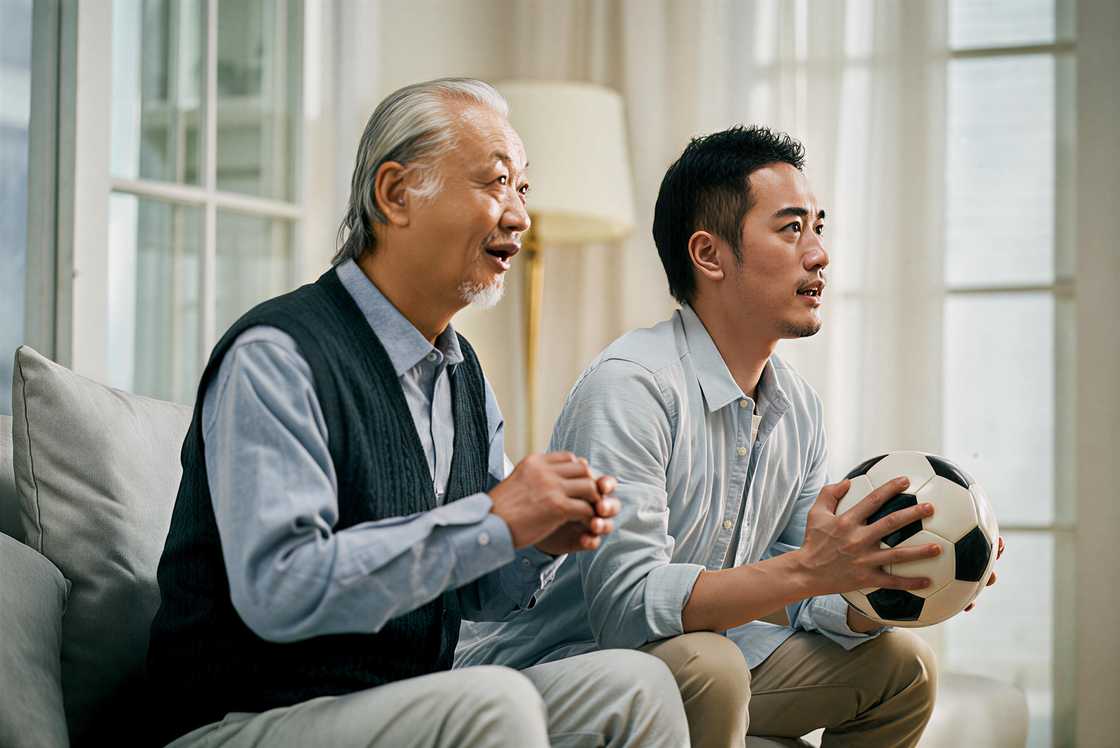
Source: Getty Images
Slowly, painstakingly, we began to talk about Rico with him, laughing at shared, small memories. Tessie started humming again. We began to worry about him. "Joselito, you are looking too thin! You need to eat proper sinigang, not that fast food rubbish."
"Are you sleeping well? That wound still looks a little pink." Our love for our lost son started flowing outward, channelled toward his best friend. We were not just accepting his presence, but fiercely and protectively nurturing him.
He was becoming our son, not in replacement, but in expansion. The void was still vast, but the shape of our family was changing. We were parenting again, and it was a lifeline.
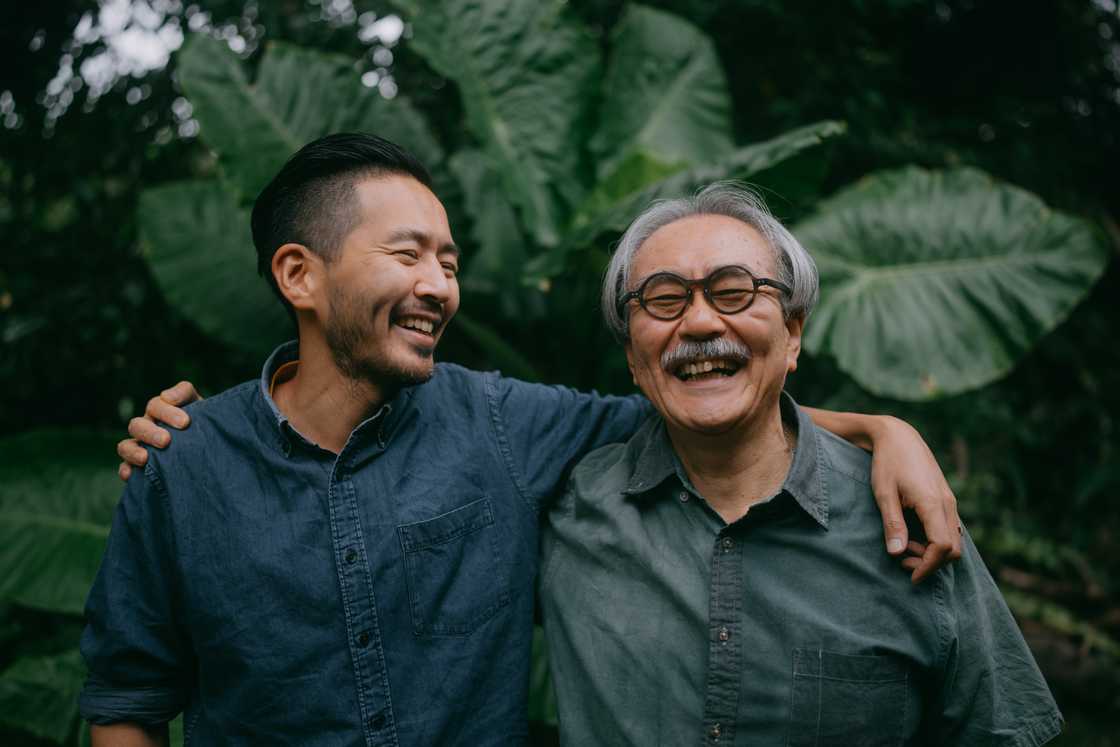
Source: Getty Images
Two years and three months after the accident, the inevitable happened. Having completed his apprenticeship, Joselito came to us one damp, overcast afternoon, a mix of excitement and sorrow clouding his face.
"Tatay, Nanay," he announced, his voice tight. "I got the job with the regional construction consortium. But it's in Cebu City. I have to move." The air left the room. It was a punch to the gut. The healing we had achieved felt immediately fragile, threatened.
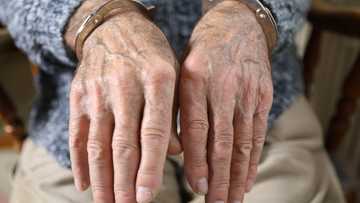
Read also
My Fiancé Defrauded My Father Landing Him In Jail — I Dug Through His History and Cleared Our Name
Tessie's eyes welled up instantly. I felt the familiar, cold panic of abandonment. We had just reclaimed a measure of peace, and now it was being taken away. It felt like a cruel, repetitive loss.
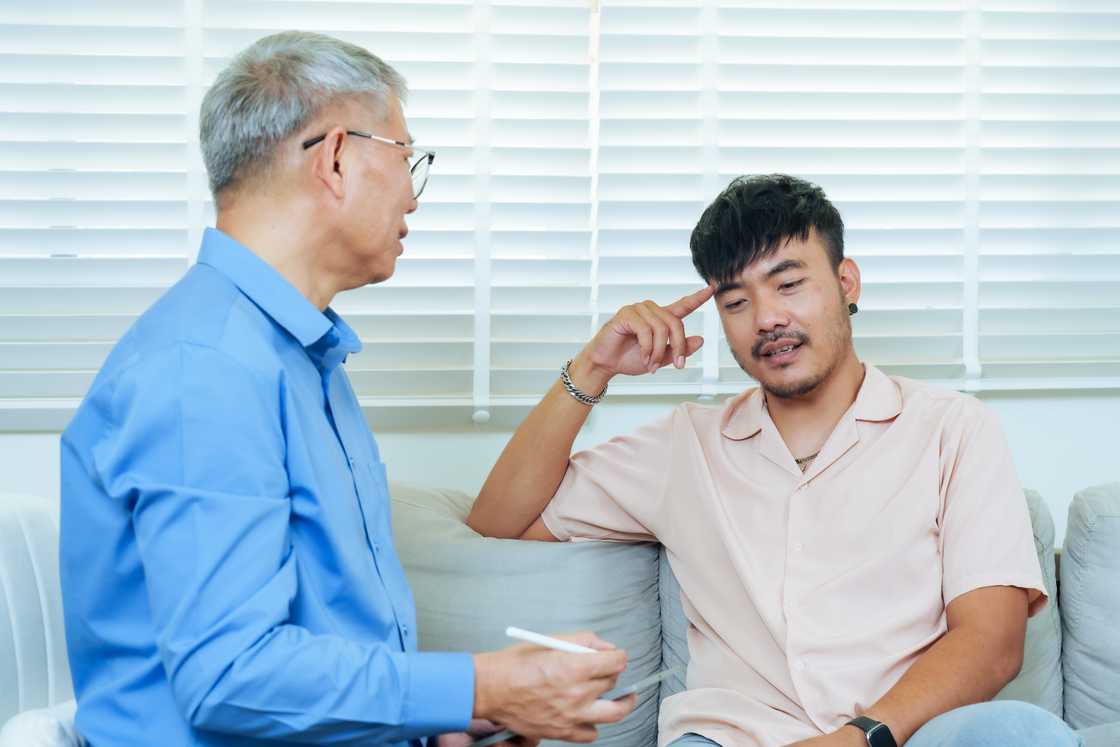
Source: Getty Images
"You can't leave, Joselito," I said, my voice harsher than I intended. "We are old. We need you here. Don't you know what you mean to us?" He didn't argue. He sat on the floor, resting his forearms on my knees, a profoundly filial gesture. "Tatay, Nanay, listen to me carefully.
I am going to Cebu City to start my life. But I am not leaving you. I am simply moving to a different city. My heart is here. You are my family." He went, but he proved his dedication through persistent and deliberate action. He called twice a week.
He used his first significant salary to wire us money and insisted we use it for a trip to the coast, arguing we needed a break from the city heat. He sent us regular pictures of his new life, including his workplace and the small apartment he had rented.

Source: Getty Images
We weren't just acquaintances; we were his confidantes, his sounding board. The bigger news arrived six months later: he was getting married to Maria, a brilliant young woman he'd met at work.

Read also
He Used My Visa Status to Demand More — I Stopped Paying, Went to Legal Aid, and Finally Broke Free
When he formally introduced her, she was respectful and kind and immediately saw our place in Joselito's life. When he asked Tessie to help him select the fabric for his wedding Barong Tagalog and asked me, his "Pangalawang Ama" (second father), to stand next to his biological father during the ceremony, the last piece of my resistance crumbled.
"Joselito," I said, my voice thick with emotion at his request. "Your father is a good man. I am only Rico's father." He smiled, that slight, endearing twitch of his mouth. "And because you are Rico's father, you are mine.
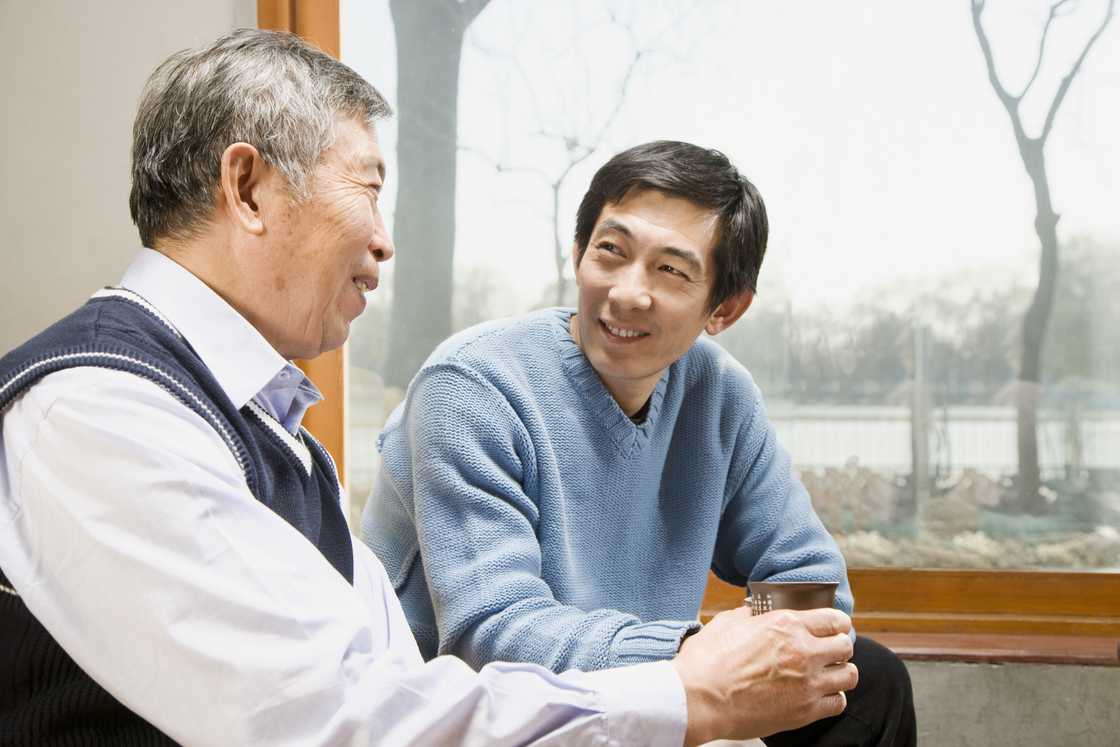
Source: Getty Images
Rico would want you there. My life is your life, Tatay. You and Nanay Tessie are my foundation now." We had always seen ourselves as the grieving parents, and Joselito as the grateful, surviving friend. The revelation was that he was now the parent, the one nurturing us back to life.
He didn't see us as victims of tragedy, but as the enduring source of love and stability that his broken heart needed. He wasn't fulfilling an obligation but demanding his place in our family.
We sat in the front row at their magnificent Filipino wedding, watching him take his vows. We were not guests; we were family. My heart swelled, realising that our love for Rico had not been buried, but had found a new, resilient vessel in his best friend.

Source: Getty Images
And so, here we were, four years later, in the Cebu City hospital. The quiet triumph of this new life, the new Rico, felt like the closing of a painful chapter and the opening of a sacred text. When Joselito announced the name, the small room fell silent.
His mother approached me, her hand resting gently on my shoulder. "It was his idea, Miguel. Maria loved the name, but Joselito insisted on it. He said he has to be named for the man who taught him everything he knows about being a good man."
I looked at the baby, Rico Miguel Santos. He was perfect. He represented a defiance against the finality of death, a promise kept. Standing straight and proud next to his wife, Joselito gave his speech, his voice ringing with conviction.
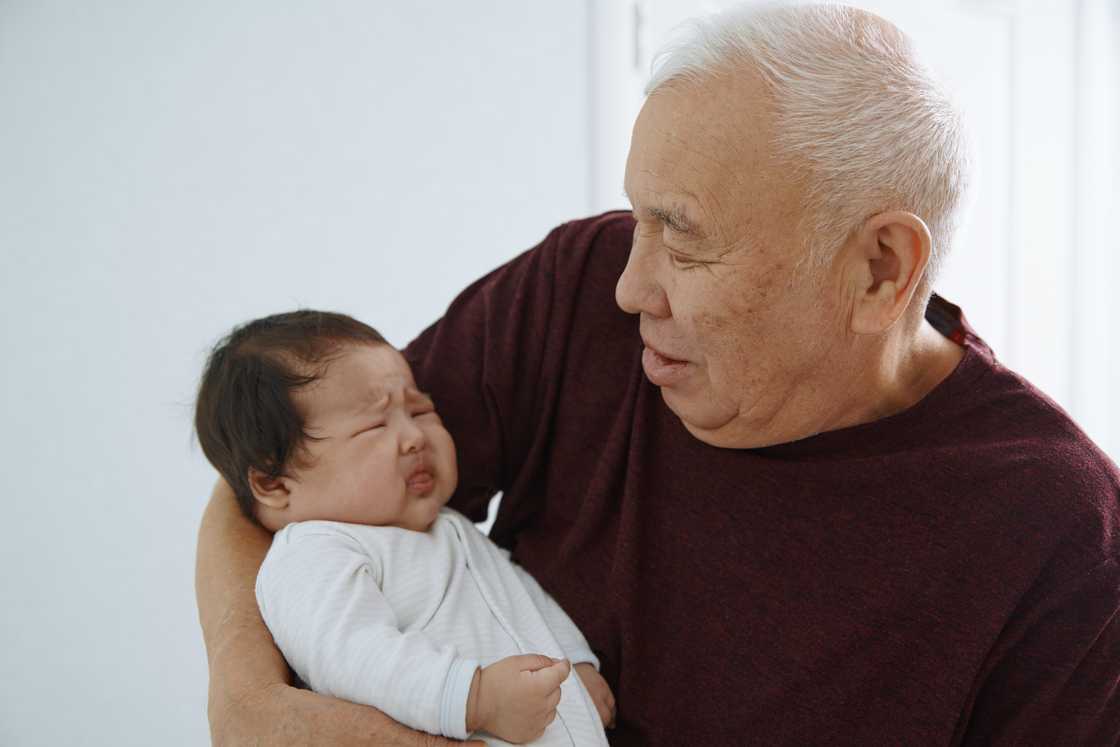
Source: Getty Images
"Tatay, Nanay Tessie," he said, looking at us, his parents, and Maria's. "The accident took my best friend, my brother. But it didn't take my family. You two came to me when I felt like a ghost, a survivor riddled with shame. You didn't just comfort me; you fought for me.
You argued with me. You cooked adobo for me. You loved me with the ferocity of true parents. You are my second parents, and I couldn't be more honoured to give you back this name, this promise.
This child will grow up knowing the story of the great Rico, the man who was his namesake, and he will see the depth of his grandparents' love—all four of you." Tears streamed down my face. Tessie was openly weeping, a handkerchief clutched to her mouth, but her eyes were the brightest I had seen them since before the accident.
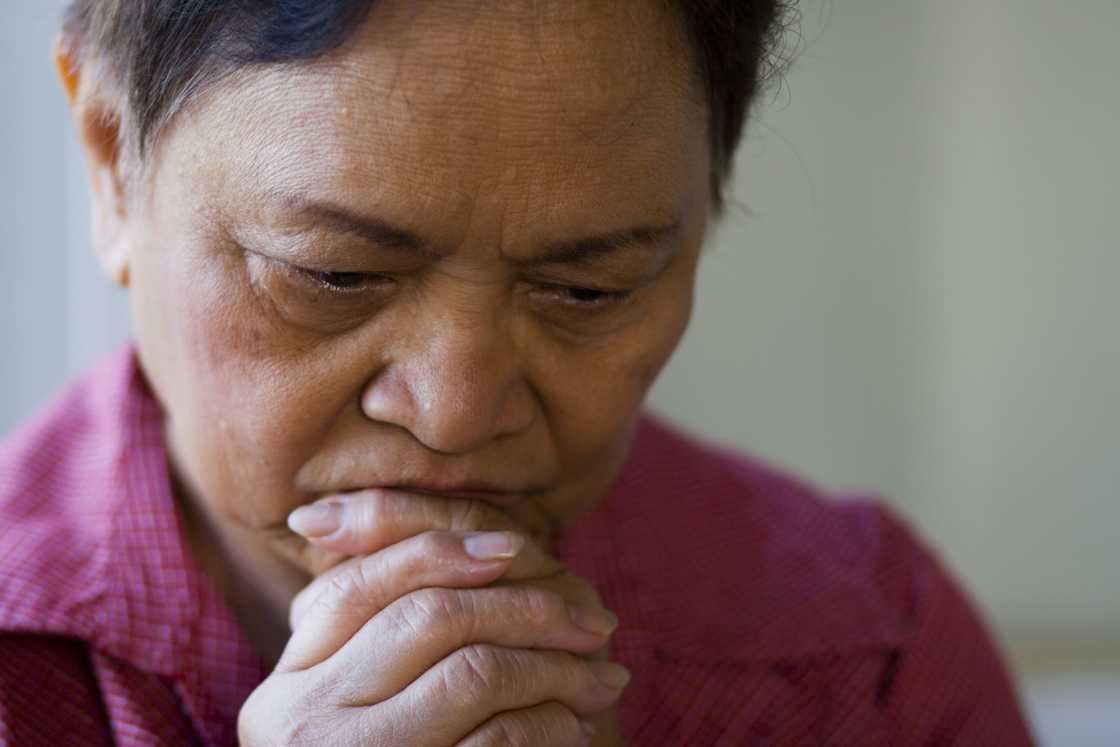
Source: Getty Images
There was no consequence, no reckoning, no settling of scores. The only resolution was the whole, overwhelming force of love that had persevered. Joselito, my second son, had given me the greatest gift: the future.
He didn't fill the space Rico left, but he created a new, beautiful space alongside it. Holding the baby Rico, I realised our legacy was not lost. It was reborn, not of our blood, but of our spirit.
The memory of the Narra tree is no longer a monument of sorrow, but a silent testament to the human heart's resilience. Holding my grandson, Rico Miguel Santos, a life born of tragedy and cemented by loyalty, I finally grasped the profound truth that had been hidden in my grief.
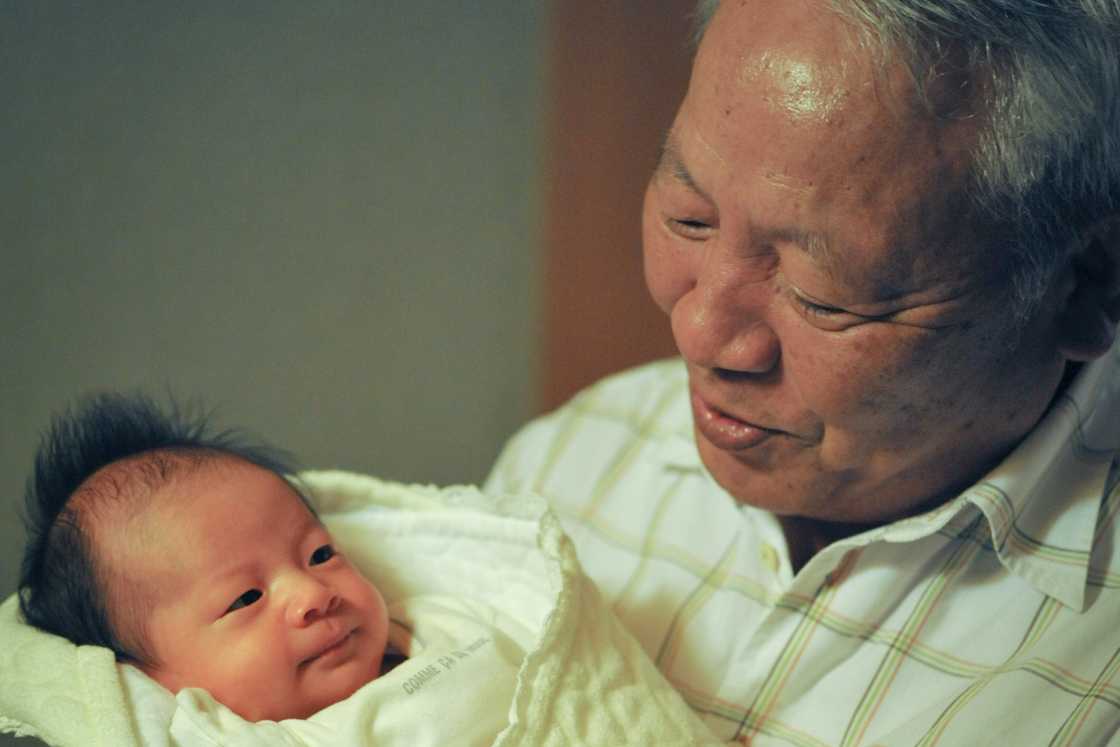
Source: Getty Images
The clear lesson is this: When God permits a tear in your life's cloth, it is often so that a stronger, richer thread can be woven into the fabric.
We clung so fiercely to the memory of the life we lost that we nearly missed the opportunity to invest in the life that was left to us. We defined our family by DNA and biology, failing to see that true kinship is defined by shared sacrifice, vulnerability, and sustained, intentional love.
Joselito didn't come to us for a handout; he came to us for an anchor. And by becoming that anchor for him, we rescued ourselves from sinking. We learned that the measure of a man is not how he endures his suffering, but how he expands his capacity to love despite it.
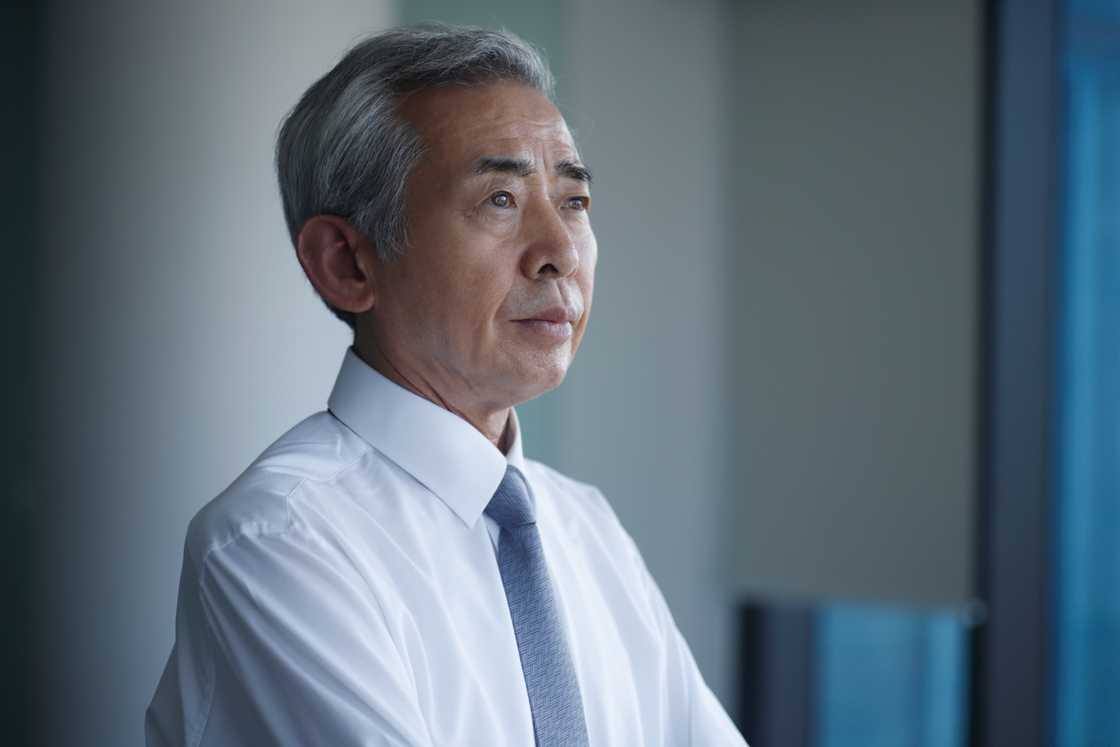
Source: Getty Images
We were not defined by forgetting the past, but by embracing the future—the future that Joselito, in his profound kindness, insisted we share. The ultimate reflection for me, the question I now pose to every soul trapped in the prison of their own sorrow, is this:
Is your heart truly open to the unexpected, sometimes messy, sometimes painful, ways that grace and second chances manifest in your life? Are you brave enough to let a new son, a new daughter, or even a new grandson be born from the ashes of your most profound grief?
This story is inspired by the real experiences of our readers. We believe that every story carries a lesson that can bring light to others. To protect everyone's privacy, our editors may change names, locations, and certain details while keeping the heart of the story true. Images are for illustration only. If you'd like to share your own experience, please contact us via email.
Bagong feature: Tingnan ang mga balitang para sa'yo ➡️ hanapin ang "Recommended for you" block at mag-enjoy!
Source: YEN.com.gh

